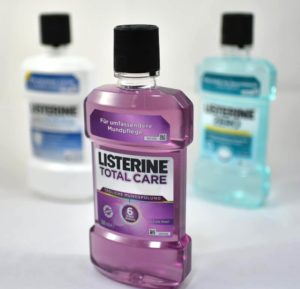This article discusses the questions, Is Mouthwash Necessary? There are 3 central factors that we will discuss here.
One thing is certain: A mouthwash alone does not ensure thorough cleaning of the teeth. It can only be done in conjunction with regular tooth brushing.
Nevertheless, you should take a closer look at mouthwashes and mouthwash solutions. Over the past decades, researchers have developed and researched different mouthwashes and we therefore have a range of different mouthwashes to choose from in every shop. There are about 20 mouthwashes with different ingredients that have different effects. Some are purely cosmetic in nature, i.e. they improve only for a short time the breath, others again suppress disease germs, should help with dental diseases and can evenreduce caries. Then there are medical mouthwashes, which have a preventive or even healing effect and are only available in pharmacies.
https://www.youtube.com/watch?v=hvpb0u6X-g0
What do cosmetic mouthwashes do?
Mouthwashes primarily provide fresh breath and thus help against bad breath. The cosmetic mouthwashes are offered in concentrated form. They must be diluted so that they can be used or they are already available in the right mixture that can be used immediately. Since these solutions fall under the “Cosmetics Regulation”, they do not have to demonstrably keep what is promised on the packaging.
Some of these mouthwash solutions have a relatively high content of peppermint extract or menthol. Medically, they don’t have much effect.
They provide little or no support for tooth cleaning. Mostly they even have a good proportion of alcohol, some up to 30%. If you have a sensitive mucous membrane, you should be extremely careful with it. For children they are completely unsuitable, there are non-alcoholic mouthwashes, which can also be used safely by “dry alcoholics”.
With this type of mouthwash, bad breath is temporarily reduced, but the volatile essential substances quickly lose their effect. Germs and bacteria are not eliminated. Only those who clean their teeth well and regularly remove the plaque on the tongue cannot go wrong with a cosmetic mouthwash.
Mouth rinses that reduce caries
Besides the cosmetic mouthwash, there are also rinses that actually have a caries-reducing effect. Some have a double effect: on the one hand, they loosen the plaque so that it can be removed more easily. On the other hand, they prevent the formation of caries.

These mouth rinses usually contain fluorides in a combination of zinc and amino fluoride. To be effective in reducing or preventing caries, they must contain at least 0.025% fluoride . They are useful for braces wearers, for people with severe gingival atrophy or gingivitis and for people with limited motor function for health or age reasons.
The fluoride-containing mouthwash is also recommended after eating acidic foods such as sour fruit, drops, juices or wine. A sip of pure waters, which rinses the acid from the teeth, also helps here.
If you are already using a toothpaste that contains fluoride, such as fluoride gel, the use of a mouthwash that contains fluoride would be almost too much.
The use of bloodroot, also known as tormentilla, also helps with bleeding gums. It has an astringent (contracting), hemostatic and anti-inflammatory effect, which has been proven in laboratory tests. It can be used very well as a conditioner for inflammations of the mouth and throat and it does not attack the oral mucosa. Brushing in inflamed areas also brings relief. It also helps with throat and larynx diseases and other conditions in the intestinal area.
There are also a number of herbal extracts with which the gums can be strengthened and supplied with blood.
Medical mouthwash: necessary?
As already mentioned above, medical mouthwashes are only available in pharmacies. They usually contain the active ingredient chlorhexidine. They have a strong antibacterial and should be used not for a longer period of time. With prolonged use, the ingredient could destroy the healthy bacterial system in the mouth and also greatly reduce the number of beneficial bacteria.
Another disadvantage is that the ingredient chlorhexidine colors the teeth and the tongue brown. This can be reduced with special toothpastes, but this in turn can affect the enamel. However, current products should already be improved so that heavy damages are to be avoided. Another side effect of chlorhexidine is the impairment of the taste buds. However, these symptoms disappear after a short time when the treatment is discontinued.
Conclusion:
There is nothing wrong with mouthwashes per se if they are used according to instructions. Cosmetic mouthwashes do not have to keep what they promise and do not prevent tooth decay. However, they provide temporary respiratory freshness. The alcohol content can affect the oral mucosa. Children should generally only use mouthwash without alcohol.
Mouthwashes that reduce or prevent caries usually contain Fluorides. These have antibacterial and germicidal effects.
A natural alternative is a mouthwash solution from the extract of the bloodroot. It also eliminates caries-promoting bacteria and has anti-inflammatory effects. If you can do without mouthwash, you can rinse your teeth thoroughly with clear water. However, it should be noted that mouthwash cannot replace toothbrush and toothpaste. Thorough cleaning is a prerequisite for healthy and strong teeth.



